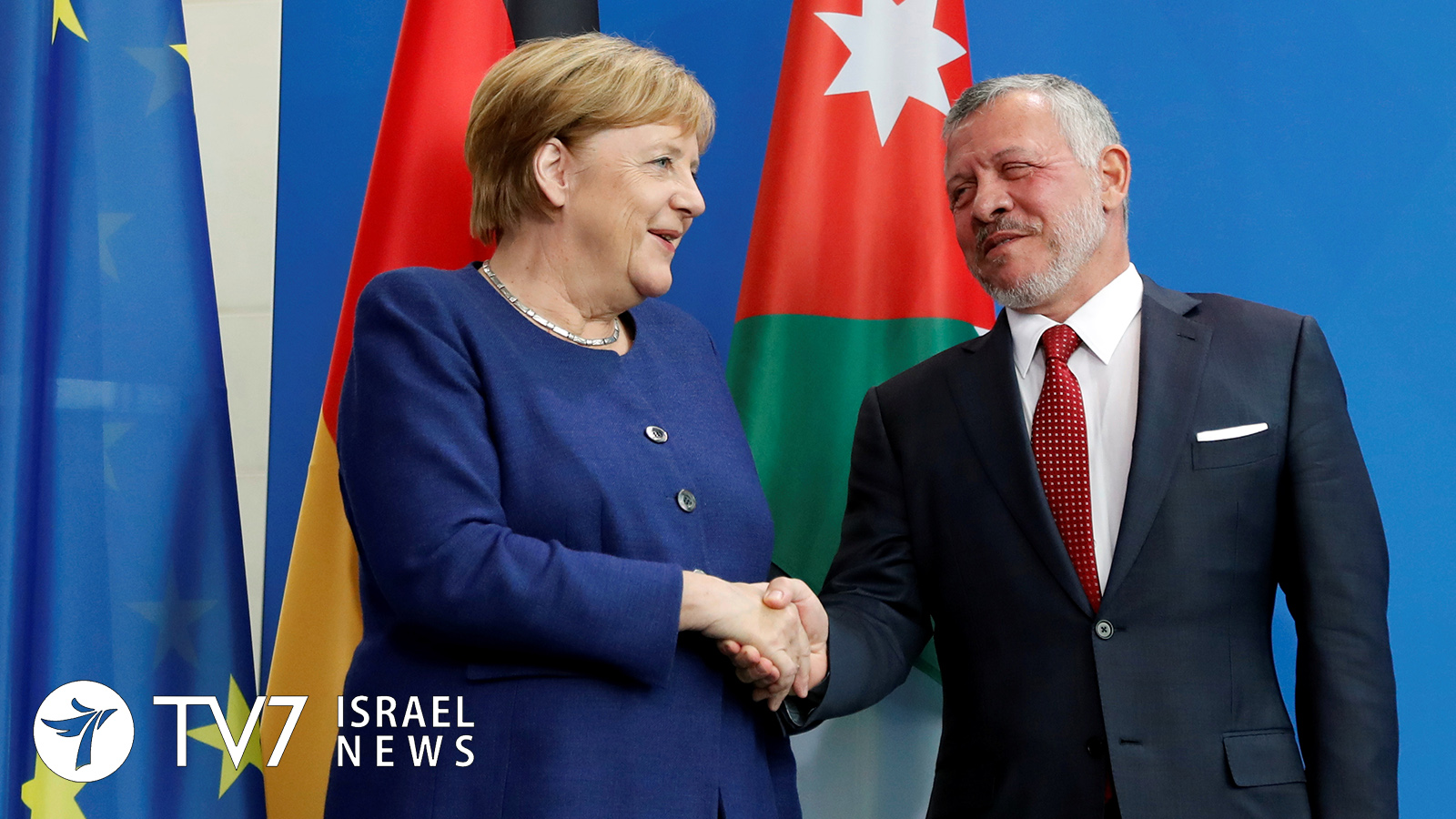Chancellor Angela Merkel held a meeting in Berlin with Jordan’s King Abdullah, after which both leaders reaffirmed their countries commitment to a two-state solution to the decades-old Israeli-Palestinian conflict. In light of Netanyahu’s election pledge to annex the West Bank district of the Jordan Valley, if re-elected, the Jordanian monarch warned that such a move would have a direct impact to Jerusalem’s relationship with Amman and Cairo, respectively.
King Abdullah II said: “I am extremely concern by statements made about the annexation of the West Bank. I think that that will directly impact the relationship between Israel and Jordan and Israel and Egypt. This does not help the contusive atmosphere to bring the Israelis and Palestinians together. So these type of statements I think are a disaster to any attempt to move forward toward the two state solution.”
With regard to the regional escalation resulting from the bombing of two of Saudi Arabia’s oil installations by Iranian-backed militants, impacting the global economy; German Chancellor Merkel insisted that Berlin continues to maintain that only a political solution can bring about a de-escalation. In her words: “We prefer a diplomatic process which we are trying to push ahead. But in recent days tensions in the region rose and Germany will always be in favor of de-escalation and long-term solutions are only possible through a political process.”
King Abdullah joined Merkel’s call for de-escalation, yet underscored that his Kingdom will support the Kingdom of Saudi Arabia in the face of Iranian threats. The Jordanian leader stated that: “All of us, I think, are working tremendously in the international community, to deconflict and bring the crisis down, because we cannot afford a pandora box scenario in our part of the world. Form a Jordanian perspective, our full support obviously to the Kingdom of Saudi Arabia, and we hope that we can get past this conflict as quickly as possible.”
